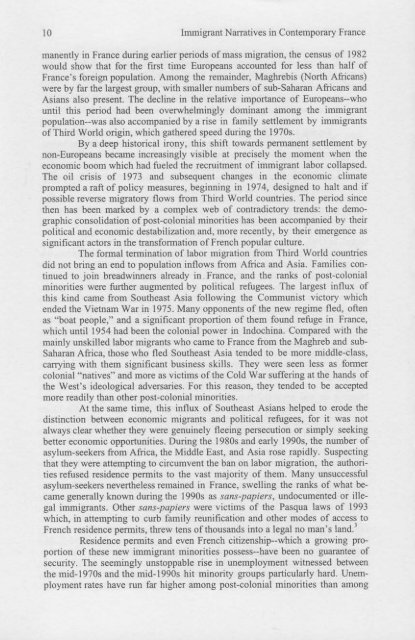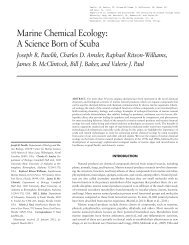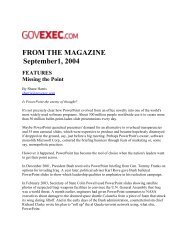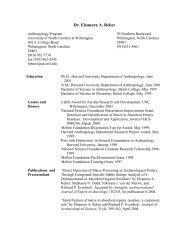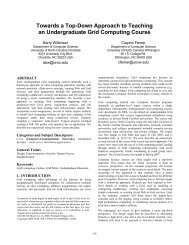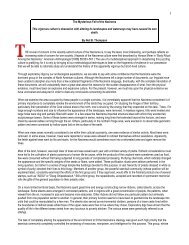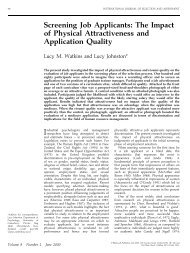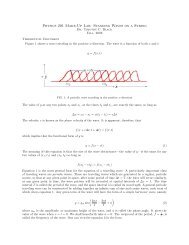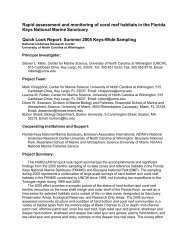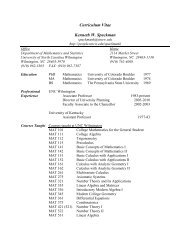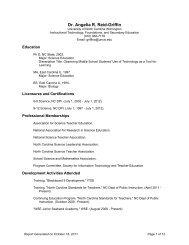Hargreaves, "Perceptions of Ethnic Difference in Post-War France"
Hargreaves, "Perceptions of Ethnic Difference in Post-War France"
Hargreaves, "Perceptions of Ethnic Difference in Post-War France"
Create successful ePaper yourself
Turn your PDF publications into a flip-book with our unique Google optimized e-Paper software.
l0<br />
Immigrant Narratives <strong>in</strong> Contemporary France<br />
manently <strong>in</strong> France dur<strong>in</strong>g earlier periods <strong>of</strong> mass migration, the census <strong>of</strong> 1982<br />
would show that for the first time Europeans accounted for less than half <strong>of</strong><br />
France's foreign population. Among the rema<strong>in</strong>der, Maghrebis (North Africans)<br />
were by far the largest group, with smaller numbers <strong>of</strong> sub-Saharan Africans and<br />
Asians also present. The decl<strong>in</strong>e <strong>in</strong> the relative importance <strong>of</strong> Europeans--who<br />
until this period had been overwhelm<strong>in</strong>gly dom<strong>in</strong>ant among the immigrant<br />
population--was also accompanied by a rise <strong>in</strong> family settlement by immigrants<br />
<strong>of</strong> Third World orig<strong>in</strong>, which gathered speed dur<strong>in</strong>g the 1970s.<br />
By a deep historical irony, this shift towards permanent settlement by<br />
non-Europeans became <strong>in</strong>creas<strong>in</strong>gly visible at precisely the moment when the<br />
economic boom which had fueled the recruitment <strong>of</strong> immigrant labor collapsed.<br />
The oil crisis <strong>of</strong> 1973 and subsequent changes <strong>in</strong> the economic climate<br />
prompted araft <strong>of</strong> policy measures, beg<strong>in</strong>n<strong>in</strong>g <strong>in</strong> I974, designed to halt and if<br />
possible reverse migratory flows from Third World countries. The period s<strong>in</strong>ce<br />
then has been marked by a complex web <strong>of</strong> contradictory trends: the demographic<br />
consolidation <strong>of</strong> post-colonial m<strong>in</strong>orities has been accompanied by their<br />
political and economic destabilization and, more recently, by their emergence as<br />
significant actors <strong>in</strong> the transformation <strong>of</strong> French popular culture.<br />
The formal term<strong>in</strong>ation <strong>of</strong> labor migration from Third World countries<br />
did not br<strong>in</strong>g an end to population <strong>in</strong>flows from Africa and Asia. Families cont<strong>in</strong>ued<br />
to jo<strong>in</strong> breadw<strong>in</strong>ners already <strong>in</strong>. France, and the ranks <strong>of</strong> post-colonial<br />
m<strong>in</strong>orities were further augmented by political refugees. The largest <strong>in</strong>flux <strong>of</strong><br />
this k<strong>in</strong>d came from Southeast Asia follow<strong>in</strong>g the Communist victory which<br />
ended the Vietnam <strong>War</strong> <strong>in</strong> 1975. Many opponents <strong>of</strong> the new regime fled, <strong>of</strong>ten<br />
as "boat people," and a significant proportion <strong>of</strong> them found refuge <strong>in</strong> France,<br />
which until 1954 had been the colonial power <strong>in</strong> Indoch<strong>in</strong>a. Compared with the<br />
ma<strong>in</strong>ly unskilled labor migrants who came to France from the Maghreb and sub-<br />
Saharan Africa, those who fled Southeast Asia tended to be more middle-class,<br />
carry<strong>in</strong>g with them significant bus<strong>in</strong>ess skills. They were seen less as former<br />
colonial "natives" and more as victims <strong>of</strong> the Cold <strong>War</strong> suffer<strong>in</strong>g at the hands <strong>of</strong><br />
the West's ideological adversaries. For this reason, they tended to be accepted<br />
more readily than other post-colonial m<strong>in</strong>orities.<br />
At the same time, this <strong>in</strong>flux <strong>of</strong> Southeast Asians helped to erode the<br />
dist<strong>in</strong>ction between economic migrants and political refugees, for it was not<br />
always clear whether they were genu<strong>in</strong>ely flee<strong>in</strong>g persecution or simply seek<strong>in</strong>g<br />
better economic opportunities. Dur<strong>in</strong>g the 1980s and early 1990s, the number <strong>of</strong><br />
asylum-seekers from Africa, the Middle East, and Asia rose rapidly. Suspect<strong>in</strong>g<br />
that they were attempt<strong>in</strong>g to circumvent the ban on labor migration, the authorities<br />
refused residence permits to the vast majority <strong>of</strong> them. Many unsuccessful<br />
asylum-seekers nevertheless rema<strong>in</strong>ed <strong>in</strong> France, swell<strong>in</strong>g the ranks <strong>of</strong> what became<br />
generally known dur<strong>in</strong>g the 1990s as sans-papiers, undocumented or illegal<br />
immigrants. Other sans-papiers were victims <strong>of</strong> the Pasqua laws <strong>of</strong> 1993<br />
which, <strong>in</strong> attempt<strong>in</strong>g to curb family reunification and other modes <strong>of</strong> access to<br />
French residenc-e p.i-itt, threw tens <strong>of</strong> thousands <strong>in</strong>to a legal no man's land.3<br />
Residence permits and even French citizenship--which a grow<strong>in</strong>g proportion<br />
<strong>of</strong> these new immigrant m<strong>in</strong>orities possess--have been no guarantee <strong>of</strong><br />
security. The seem<strong>in</strong>gly unstoppable rise <strong>in</strong> unemployment witnessed between<br />
the mid-1970s and the mid-1990s hit m<strong>in</strong>ority groups particularly hard. Unemployment<br />
rates have run far higher among post-colonial m<strong>in</strong>orities than among


